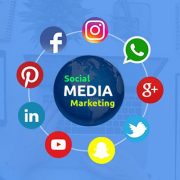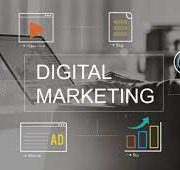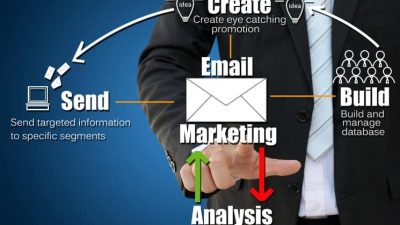In the ever-evolving landscape of online promotion and audience engagement, two terms often emerge Content Marketing and Digital Marketing. While they share the overarching goal of boosting brand visibility and driving conversions, they operate through distinct strategies and mechanisms.
Understanding Content Marketing
Definition of Content Marketing
Content marketing revolves around creating and distributing valuable, relevant, and consistent content to attract and retain a clearly defined audience. This content aims to drive profitable customer action while fostering brand loyalty and trust.
Importance of Content Marketing
Content marketing serves as the cornerstone of online visibility, establishing brands as industry authorities and fostering meaningful connections with target audiences.
Exploring Digital Marketing
Definition of Digital Marketing
Digital marketing encompasses all marketing efforts that utilize electronic devices or the internet. It leverages various online channels such as search engines, social media, email, and websites to connect with prospective customers.
Significance of Digital Marketing
Digital marketing offers unparalleled reach and targeting capabilities, enabling businesses to engage with specific demographics and track campaign performance in real time.
Key Differences Between Content Marketing and Digital Marketing
While both strategies aim to drive audience engagement and conversions, they differ significantly in their approaches and focal points.
Objectives
Content marketing primarily focuses on delivering valuable content to attract and retain customers, whereas digital marketing emphasizes leveraging digital channels for promotion, lead generation, and sales.
Focus Areas
Content marketing centers on storytelling, education, and relationship-building through content creation and distribution. In contrast, digital marketing encompasses a broader spectrum of activities, including search engine optimization (SEO), social media marketing, email marketing, and pay-per-click advertising.
Tools and Platforms
Content marketing relies on content management systems (CMS), blogging platforms, and social media channels to disseminate content effectively. Digital marketing employs a diverse array of tools such as Google Ads, Facebook Ads Manager, email marketing software, and analytics platforms to optimize campaign performance and measure ROI.
How Content Marketing Works
Content marketing operates through strategic content creation, distribution, and audience engagement.
Strategies and Techniques
Content marketers employ various strategies, including blogging, video marketing, infographics, podcasts, and social media content, to resonate with target audiences and drive desired actions.
Content Types
Content marketing encompasses a wide array of content formats tailored to specific audience preferences and platforms, ranging from informative blog posts to visually captivating videos and interactive quizzes.
Target Audience Engagement
Successful content marketing hinges on understanding audience demographics, interests, and pain points to deliver relevant and timely content that resonates with their needs and aspirations.
How Digital Marketing Works
Digital marketing leverages online channels and data-driven insights to optimize brand visibility and engagement.
Channels and Methods
Digital marketers harness the power of search engine marketing (SEM), social media advertising, email campaigns, influencer partnerships, and affiliate marketing to reach target audiences across various touchpoints in the buyer’s journey.
Targeting and Analytics
Digital marketing platforms offer advanced targeting options and comprehensive analytics tools that enable marketers to segment audiences, track user behavior, and measure campaign performance with precision.
Integrating Content Marketing with Digital Marketing
To maximize outreach and impact, businesses often integrate content marketing with digital marketing initiatives.
Synergies and Collaborations
By aligning content creation efforts with digital marketing objectives, organizations can amplify their brand messaging and drive cohesive customer experiences across multiple channels.
Maximizing Outreach
Integrating content marketing with digital marketing channels enables brands to leverage the strengths of each approach while mitigating their respective weaknesses, resulting in a holistic and impactful marketing strategy.
Case Studies Illustrating Content and Digital Marketing Successes
Real-world examples demonstrate the effectiveness of synergistic content and digital marketing campaigns across diverse industries and target demographics.
Challenges Faced in Content and Digital Marketing
Despite their effectiveness, content and digital marketing strategies encounter several challenges.
Content Creation Challenges
Producing high-quality, engaging content consistently requires substantial time, resources, and creative effort.
Digital Advertising Complexity
Navigating the complexities of digital advertising platforms and algorithms demands ongoing optimization and strategic refinement to achieve the desired results.
Future Trends in Content and Digital Marketing
As technology continues to evolve, content and digital marketing strategies are poised to undergo transformative changes.
AI Integration
Artificial intelligence (AI) and machine learning technologies are revolutionizing content personalization, predictive analytics, and marketing automation, enabling businesses to deliver hyper-targeted messaging at scale.
Personalization and Automation
The future of marketing lies in hyper-personalized, data-driven experiences that anticipate and fulfill consumer needs in real time, driving enhanced engagement and conversion rates.
Conclusion: Emphasizing the Complementary Nature of Content and Digital Marketing
In conclusion, content marketing and digital marketing are not mutually exclusive but rather complementary components of a comprehensive marketing strategy. By leveraging the strengths of both approaches and embracing emerging trends, businesses can forge deeper connections with their audiences, drive brand loyalty, and achieve sustained growth in the digital era.























Comments